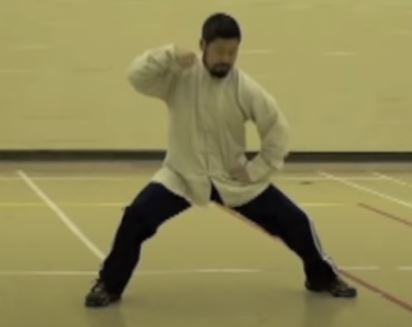 In the Ottawa Mar 24-25, 2018 workshop, Master Chen Zhonghua re-emphasized the importance of creating a differential. He mentioned that steam would always rise up through an opening in a pot, and water would always run down a fall. These are examples of having a differential. We don’t force the steam up or push the water down. It is the property of steam or water given the situation. As long as the particular situation happens, the steam or water will simply behave that way. Steam and water are examples of a differential in position. There are also timing differential, power differential, length differential, movement differential, etc.
In the Ottawa Mar 24-25, 2018 workshop, Master Chen Zhonghua re-emphasized the importance of creating a differential. He mentioned that steam would always rise up through an opening in a pot, and water would always run down a fall. These are examples of having a differential. We don’t force the steam up or push the water down. It is the property of steam or water given the situation. As long as the particular situation happens, the steam or water will simply behave that way. Steam and water are examples of a differential in position. There are also timing differential, power differential, length differential, movement differential, etc.
When we push hands, we should set ourselves up with the opponent in such a way to allow a differential to be present, e.g.
One move we often attempt is to put the front thigh behind the opponent’s front thigh, and make the opponent fall to the ground backwards. One common way seen is we push too much from the top, and yet the move is not very successful and it seems to take a lot of effort. I recently find that another way to execute this is to match the opponent at the top, and if the opponent happens to use my front thigh to support himself, I can just open the front kua to create an opening to the ground. This is like opening the trap door from below, and the opponent suddenly just falls through it. I also remember in a number of occasions when Master Chen commented during push hands practice, and said “Don’t fight, just go down with the opponent”. We often support the opponent’s stance, if we can remove such support, we will create a differential, and the opponent just falls down himself.
The lesson to take away is that we match and don’t fight, and look for opportunities to create a differential. Whatever should happen under those conditions, it will happen by itself.



{ 1 comment… read it below or add one }
The creating of differentials, ass far as I am capable of, helped enormously in my push hands performance. I found mostly trained elder taiji brothers (disciples) are capable of dealing with it.